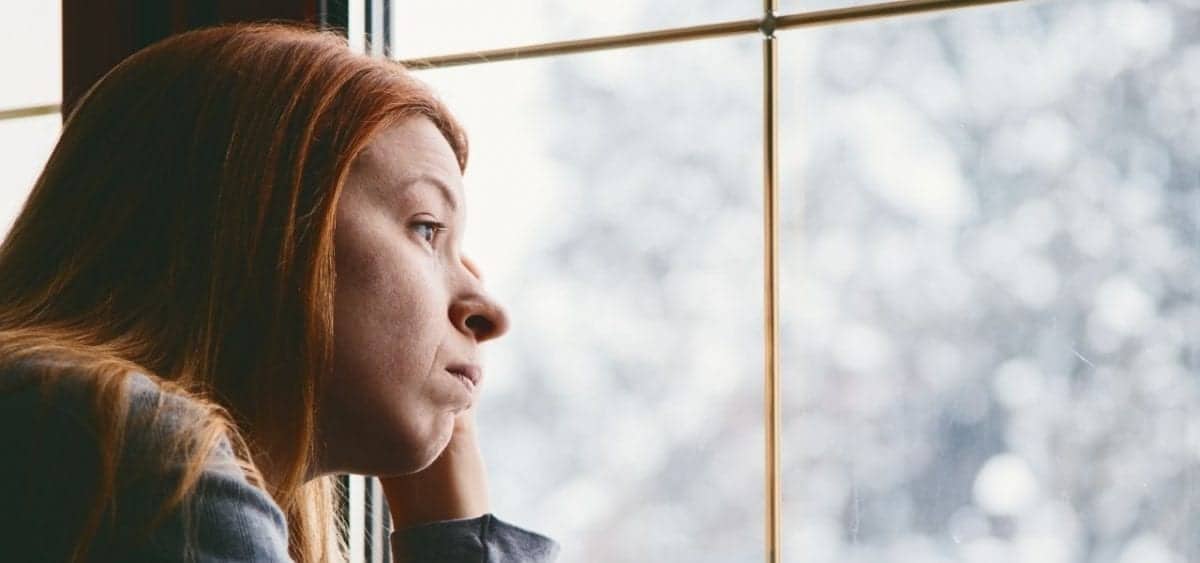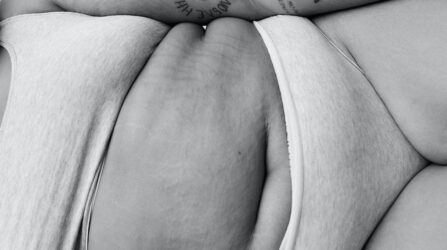Home > Emotional wellbeing > Mental health > Seasonal Affective Disorder (SAD)


Autumn just happens to be my favourite time of year. I love it. Beautiful crisp,sunny days, the colours of the leaves falling off the trees, and of course the exitement starts to build for Christmas. Then the New Year is the time for making plans, and starts and beginnings The season of long winter nights and sparkling lights, merriment and the greetings of goodwill.
But for a lot of people it is a time of year they dread. They view it as long dark days and nights, miserable weather, cold and dreary. They suffer from SAD or Seasonal Affective Disorder, which causes low mood, even depression, especially during winter. You may feel like a completely different person than you do in the summer months.
Whilst some people can suffer in the Summer months like we talked about here earlier this year, winter is the more common time. Some people really struggle as soon as it starts to get darker earlier. There maybe occasions that also affect people at this time of year. Christmas can be particularly hard on people, whether it is loneliness, or money worries even abuse can all place even more stress on people in the Winter season.
A lot of the time it can be managed by trying different methods like light therapy, getting out in the daylight or sunshine daily, but for those who really struggle with the darker months they find themselves depressed and on medication, and find that it really affect their life.
It’s not that clear what actually causes SAD. The symptoms vary from people to people, but some of them can include:
Lack of Serotonin – it’s the hormone that affects mood, appetite & sleep, and the lack of sunshine may lead to lower levels.
Lack of Melatonin – This is the hormone that makes you feel sleepy. Your body may produce higher levels than normal. You may find yourself taking naps in the day.
Body’s internal clock – The body uses sunlight as a timer, eg: when to wake up. Lack of sunlight can lower serotonin levels and slow down the sleep, appetite, temperature, mood and activity functions.
The change in weather temperature can also affect you. People may feel better in warmer temperature’s, but people can struggle in hotter temperatures too.
Lack of energy – may even feel sleep during the day. Not interested in anything.
Sleep problems – struggling to get up in the morning, or struggling to get up in the morning, or having trouble sleeping.
Changes in appetite – from eating more, especially carbohydrates, and even eating less. Craving sugary foods.
Prone to infections – you may find you are more susceptable to coughs and colds. So it’s important to eat well and take care of your self.
Feeling sad or low mood – these are common and can even lead to Depression.
Always seek medical attention or help of you feel you are suffering from any of the above!
Talking therapies – people find that counselling or CBT may help, or find a support group, so you know you are not on your own. I really find that talking about it helps.
Light therapy – a “light box” is used so that it can simulate the some sunlight exposure. But also be aware that if you are taking the supplement St Johns Wort it can make you skin more sensitive to light. Also check with an optician if you have any eye problems.
Complementary / Alternative therapies – From healing or massage to accupuncture, there are many different types of therapies to choose from. There are also Herbal remedies, but always check with a professional if you are taking any other medication. People find taking Vitamin D helps them during the winter months.
Meditation – Visualisation and relaxation all help you through this. There are so many apps, online videos you can use to try any of these techniques. Breathing techniques and focusing on the positives, is something that I find really helps.
Creative therapies – find a new hobbie, or something new to do in your free time. People find that this really helps with their mental health.
Medication – If you feel depressed your GP may recommend medication. Of course this will be advised after getting a diagnosis.
There is no actual cure for Seasonal affective disorder, so it is a case of managing your symptoms and seeing what works best for you. Try other things, get as much natural sunlight as possible, make you home light and airy and let as much natural light in as possible. Even try sitting next to the window in natural light. Eat well, a healthy, balanced diet and get lots of exercise, and try to manage any stress or strssful situations.
It is sometimes hard to open up to how you are feeling, but try and tell your family and friends around you how you feel. If you know someone who suffers from SAD reach out to them and but don’t put pressure on them. It is not something that someone can just “snap out” of. People with SAD can feel very isolated. Check in them, make sure they are doing ok. Do they need help with anything, from shopping or just talking with someone, ask them what they need. It might just help to know someone is there for them.
Put plans into place early on in the year. Plan activities or social meetings with friends, meet up for coffee or book any alternative therapy appointments if want to try them. Join a new class or find a support group that you feel you would benefit from. Do something you enjoy, something that you love to do. If your energy levels get low, get organised early so they are in place, as it is possible you won’t feel up to it later on. But try not to take on too much, decide what your limits are.
You should always seek medical advice, if your moods are really low and nothing seems to be working or helping you.

-


Dr Singh is the Medical Director of the Indiana Sleep Center. His research and clinical practice focuses on the myriad of sleep.

What does spotting before your period look like? Spotting is a few drops of blood on your underwear that are not enough to soak a pad. It’s typically brown, light pink, or red and may only be noticeable on a

Postpartum hormonal changes: What are they? Postpartum hormonal changes occur when your body experiences shifting hormone levels after birth. After your baby is born, the doctor removes the afterbirth or placenta, which sends signals to your body that you’re no

What is ovulation fatigue? As women, we can get numerous symptoms throughout our menstrual cycles. One question we’re asked is, “Why do you get tired during ovulation?” For some, the answer could be ovulation fatigue. Ovulation fatigue is when you
Hormona© 2025, All Rights Reserved
| Cookie | Duration | Description |
|---|---|---|
| cookielawinfo-checkbox-analytics | 11 months | This cookie is set by GDPR Cookie Consent plugin. The cookie is used to store the user consent for the cookies in the category "Analytics". |
| cookielawinfo-checkbox-functional | 11 months | The cookie is set by GDPR cookie consent to record the user consent for the cookies in the category "Functional". |
| cookielawinfo-checkbox-necessary | 11 months | This cookie is set by GDPR Cookie Consent plugin. The cookies is used to store the user consent for the cookies in the category "Necessary". |
| cookielawinfo-checkbox-others | 11 months | This cookie is set by GDPR Cookie Consent plugin. The cookie is used to store the user consent for the cookies in the category "Other. |
| cookielawinfo-checkbox-performance | 11 months | This cookie is set by GDPR Cookie Consent plugin. The cookie is used to store the user consent for the cookies in the category "Performance". |
| viewed_cookie_policy | 11 months | The cookie is set by the GDPR Cookie Consent plugin and is used to store whether or not user has consented to the use of cookies. It does not store any personal data. |
